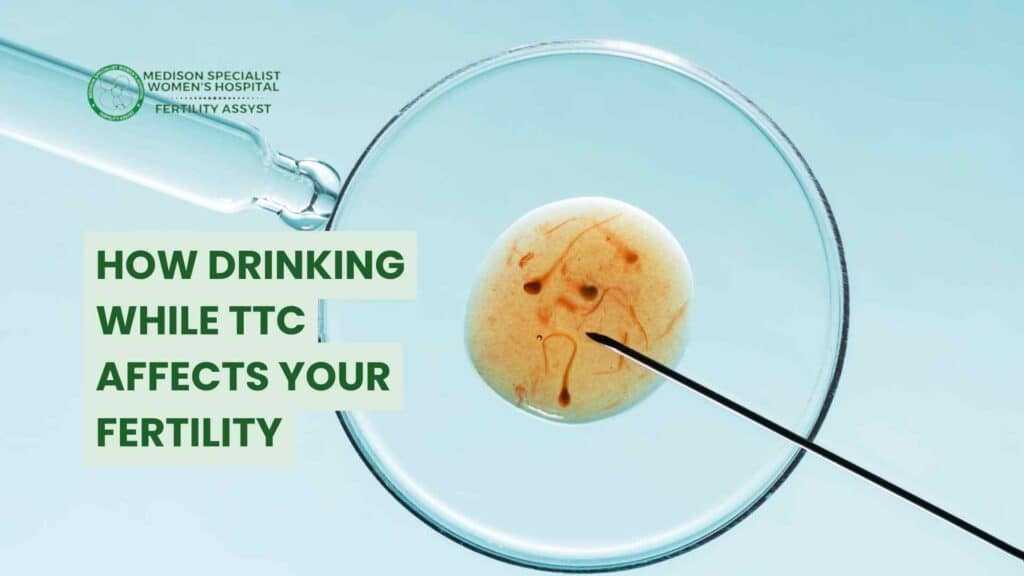How Drinking While TTC Affects Your Fertility
“TTC” stands for “Trying To Conceive,” and when it comes to the impact of alcohol consumption on fertility, the relationship can be complex. While moderate alcohol consumption is generally considered acceptable for many individuals, excessive or heavy drinking may have negative effects on fertility for both men and women.

Women’s Fertility:
-
Ovulation Disruption: Excessive alcohol intake can disrupt a woman’s menstrual cycle, leading to irregular ovulation. This irregularity can make it difficult for couples to conceive.
-
Hormonal Imbalance: Alcohol can affect hormonal balance, impacting the levels of reproductive hormones such as estrogen and progesterone. These hormonal imbalances may interfere with the fertility process.
Men’s Fertility:
-
Sperm Quality: Heavy alcohol consumption has been linked to a decrease in sperm quality. This includes reduced sperm count, motility, and morphology, all of which are crucial factors for successful conception.
-
Hormonal Changes: Alcohol can lead to hormonal changes in men, affecting testosterone levels and potentially impacting sperm production.
Both Partners:
-
Time to Conception: Studies have suggested that high levels of alcohol intake can increase the time it takes for couples to conceive.
-
Miscarriage Risk: Excessive alcohol consumption during pregnancy is associated with an increased risk of miscarriage and developmental issues. Since conception may not be immediately known, it’s advisable for both partners to limit alcohol intake during the TTC phase.
Moderation is Key:
-
For Women: While trying to conceive, women are generally advised to limit alcohol intake and practice moderation. It’s often recommended to avoid alcohol altogether during the two-week wait (the time between ovulation and the expected start of the menstrual period).
-
For Men: Men should also aim for moderate alcohol consumption to support optimal sperm health.
Seek Professional Advice:
- Individual Variations: Fertility can be influenced by various factors, and individual responses to alcohol can differ. Couples struggling to conceive may benefit from consulting with a healthcare professional or a fertility specialist to assess their specific situation.
In conclusion, while moderate alcohol consumption may not significantly impair fertility for many couples, excessive drinking can have adverse effects. Couples attempting to conceive are encouraged to adopt a healthy lifestyle, including moderate alcohol consumption, regular exercise, and a balanced diet, to optimize their chances of a successful pregnancy.
